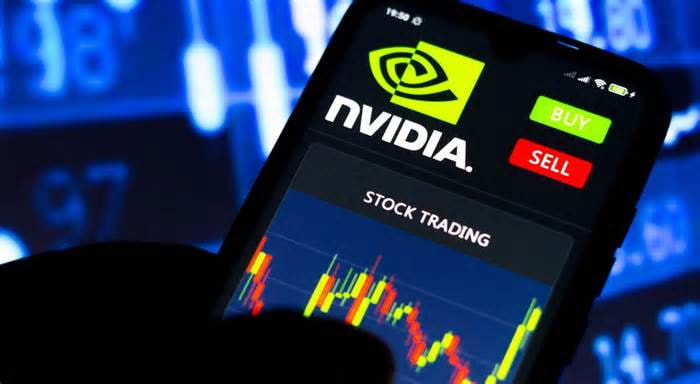TikTok's Uncertain Future: Navigating the Choppy Waters of US Politics and Legal Battles
Meta Description: TikTok ban, Trump's stance, legal challenges, ByteDance, national security concerns, data privacy, app store removal, future of TikTok in the US. Explore the complex legal and political landscape surrounding TikTok's fate in the US.
This isn't just another news story about TikTok's precarious position in the US; it's a deep dive into the swirling vortex of politics, law, and big tech. Forget the soundbites and sensational headlines – we're peeling back the layers to reveal the intricate strategies, high-stakes maneuvering, and potential outcomes facing TikTok and its parent company, ByteDance. This isn't about simple bans and approvals; it's about the power plays, the legal loopholes, and the very real possibility of a complete reshaping of the app's presence in the American market. We'll dissect the conflicting statements, scrutinize the legal arguments, and explore the potential scenarios – from a complete ban to a carefully orchestrated "divorce" that keeps TikTok alive but under new management. Get ready to understand the complexities of this ongoing saga, complete with insider insights and expert analysis that will leave you fully informed and perhaps even a little surprised. Prepare for a rollercoaster ride through the intricacies of international tech regulations, the unpredictable nature of US politics, and the sheer determination of a company fighting for its survival in one of the world's most important markets. We’ll explore the legal precedents, dissect the political motivations, and uncover the potential long-term ramifications for other tech companies operating in a globalized world. This isn't just about TikTok; it’s about the future of international tech regulation and the delicate balance between national security and free enterprise. So buckle up, because this is going to be a wild ride.
TikTok's Legal Tightrope Walk: A Battle for Survival
The fate of TikTok in the US hangs precariously in the balance, a situation far more nuanced than a simple "ban" or "no ban" scenario. The saga began with concerns over national security and data privacy, escalating into a legal battle that's captivated the tech world and beyond. The Trump administration's initial attempts to ban the app, followed by a surprising shift in stance during the election, have only amplified the uncertainty. President-elect Biden's approach remains unclear, adding another layer of complexity to the situation. This isn't just about a popular app; it's a clash between powerful forces, raising crucial questions about the role of foreign-owned companies in the US digital landscape.
The current legal landscape is a minefield. A federal appeals court upheld a lower court's order mandating ByteDance divest itself from TikTok by January 19th, 2024, or face a complete ban. ByteDance's response was immediate: a request for a stay pending Supreme Court review. This highlights the incredibly high stakes and the lengths ByteDance is willing to go to keep TikTok operational in the US market. The legal arguments revolve around national security concerns and the potential for data misuse, with ByteDance consistently arguing that the government's actions are unwarranted and overly broad.
This isn't just a fight in the courtroom; it's a battle for public opinion. ByteDance has showcased TikTok's immense popularity in the US, boasting over 170 million monthly active users – a number that dwarfs many established social media platforms. Losing access to this massive user base would be a devastating blow, not only financially, but also strategically. This fight also has important implications for other foreign companies operating in the US, serving as a precedent for future regulatory actions. The outcome will significantly influence how governments approach national security concerns in the digital age.
The Trump Factor: A Wild Card in the Deck
Donald Trump's fluctuating position on TikTok adds a significant element of unpredictability to the situation. While his initial attempts to ban the app were driven by national security concerns, his later statements suggesting he might intervene to keep TikTok operational are perplexing, to say the least. This shift in strategy might be driven by various factors, including the app's immense popularity and the political ramifications of banning such a widely used platform. However, his potential methods of intervention are limited by the existing legal framework; executive orders or even a request for the Department of Justice to drop the case might not withstand legal scrutiny. The political landscape is complex; even if Trump were to intervene, he'd need Congressional support, something that appears unlikely given the prevailing sentiment among many Republican lawmakers.
Analysts suggest that Trump might attempt a "clever" manoeuvre, possibly orchestrating a seemingly independent divestment of TikTok from ByteDance, portraying himself as a champion of saving TikTok from a complete ban. This scenario, however, is rife with challenges. Completely separating TikTok from its parent company is a Herculean task; the two entities are deeply intertwined in terms of technology, personnel, and overall strategy. Such a forced separation could be legally challenging and politically disastrous, potentially opening Trump to accusations of weakness or favoritism.
ByteDance's Strategic Maneuvers: A Fight for Survival
ByteDance's legal team is employing every available tactic to delay and potentially overturn the ban. The emergency motion filed with the US Court of Appeals for the District of Columbia Circuit requesting a stay of enforcement highlights the company's aggressive strategy. This move is meant to buy time, allowing for a more thorough evaluation by the Supreme Court. ByteDance's strategy is clear: to exhaust all legal avenues, hoping for a favourable outcome that would allow TikTok to continue operating as usual in the US. The sheer scale of the challenge is considerable; not only do they need to navigate the complex US legal system, but they also have to deal with the unpredictable nature of American politics. The stakes are exceptionally high, with the fate of a hugely successful app, billions of dollars, and international relations all at stake.
ByteDance’s public relations campaign isn't solely focused on legal battles. They've emphasized TikTok's economic contribution to the US economy, highlighting job creation and the significant revenue generated through the platform. This is a smart move; appealing to economic interests can often sway public and political opinion in favor of a less restrictive approach. The strategy underscores the company's understanding of the power dynamics involved; a legal win alone isn't sufficient; they need to build and maintain a strong public image to influence the trajectory of the case.
Looking Ahead: Potential Outcomes and Their Implications
The future of TikTok in the US remains uncertain. There are several possible outcomes, each with far-reaching consequences:
-
Complete Ban: This would be a significant blow to ByteDance and a victory for those concerned about national security. It would also set a precedent that could affect other foreign tech companies operating in the US.
-
Forced Divestment: This scenario, while seemingly a compromise, is fraught with difficulties. The complete separation of TikTok from ByteDance is technically complex and politically sensitive.
-
Negotiated Settlement: This is the most likely, but also the most unpredictable outcome. It involves negotiations between ByteDance, the US government, and possibly other stakeholders. The terms of such a settlement would be crucial, influencing the degree of control the US government exerts over TikTok's operations.
-
Supreme Court Intervention: The Supreme Court's decision will be pivotal. A ruling in favor of ByteDance could significantly alter the course of the legal battle, while an unfavorable ruling could pave the way for a ban.
The implications extend far beyond TikTok itself. This case sets a significant precedent for how governments balance national security concerns with the free flow of information and the operations of foreign tech companies. The outcome will likely influence future regulations surrounding data privacy, national security, and the operation of foreign-owned tech platforms in the US and across the globe. For other tech giants with a global presence, the TikTok case serves as a stark warning, underscoring the need for proactive engagement with regulatory bodies and a deep understanding of the ever-evolving political landscape.
Frequently Asked Questions (FAQs)
Q1: What are the main concerns regarding TikTok's presence in the US?
A1: The primary concerns revolve around data security and national security. There are fears that TikTok's parent company, ByteDance, could be compelled by the Chinese government to share user data, potentially compromising sensitive information. Additionally, concerns exist about potential censorship or manipulation of the algorithm to promote specific narratives.
Q2: What legal avenues does ByteDance still have?
A2: ByteDance can still appeal to the Supreme Court, hoping for a stay of the lower court's order. They can also engage in further negotiations with the US government, seeking a more favorable settlement.
Q3: What is the potential impact on other international tech companies?
A3: This case sets a crucial precedent. Other international tech companies operating in the US could face increased scrutiny and stricter regulations, potentially impacting their operations and investment strategies.
Q4: What is the role of the US Congress in this situation?
A4: Congress could potentially intervene by altering existing legislation or introducing new laws that might influence the outcome. However, this requires bipartisan support, which may be difficult to achieve given the current political climate.
Q5: How does public opinion affect the situation?
A5: Public opinion significantly influences the political and legal landscape. Strong public support for or against TikTok can impact the government's decision-making process and the overall outcome of the case.
Q6: What are the economic implications of a TikTok ban?
A6: A ban would have significant economic ramifications. It would impact TikTok's revenue streams, the livelihoods of employees, and the advertising ecosystem that supports the platform. It could also negatively affect the broader US economy, especially the creative industries that rely on TikTok for content distribution and marketing.
Conclusion: A Long and Winding Road Ahead
The TikTok saga is far from over. The legal battles, political maneuvering, and public discourse will likely continue for some time. The final outcome will have significant implications not only for TikTok but also for the wider tech industry and international relations. The case highlights the complexities of balancing national security with the principles of free speech and economic competition in the digital age. The coming months will be crucial in determining the future of TikTok in the United States and setting a precedent for how such conflicts will be handled in the future. The legal and political battles are far from over, and the future of TikTok in the US remains uncertain. The waiting game continues, with each day bringing new developments and reinforcing the high stakes involved in this global tech battle.



